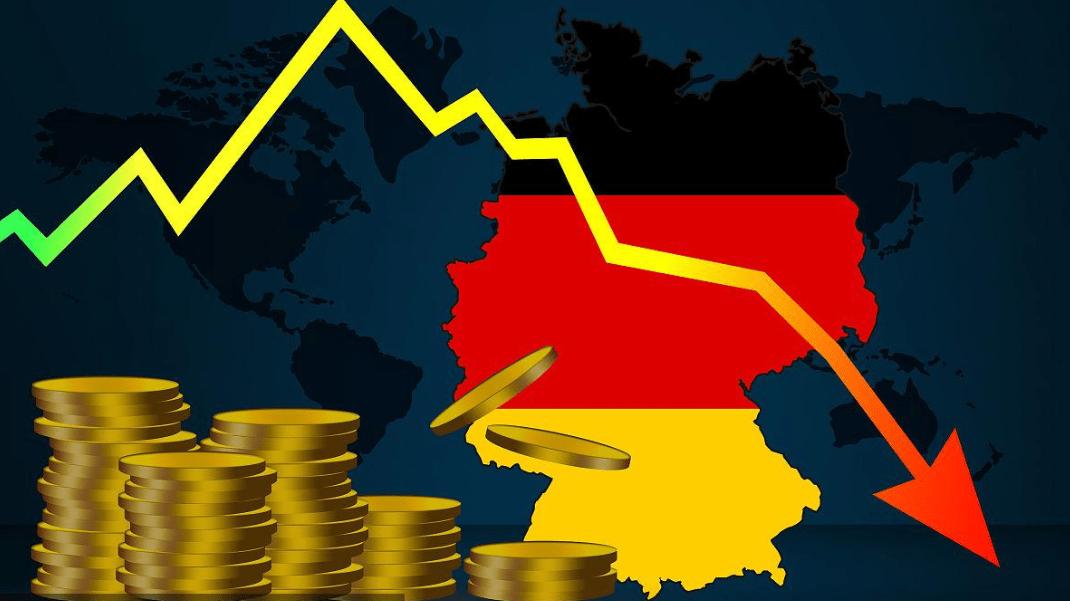
The German business climate index fell to 86.6 points in August, down from 87.0 points in July, marking the fourth consecutive month of decline, reflecting the severe challenges facing the German economy, according to the German think tank Ifu Institute for Economic Research on the 26th.
According to historical data and economic theory, the business climate index is one of the important indicators to measure the economic health of a country. When the business climate index falls, it usually means that enterprises are not optimistic about the future economic prospects, which may lead to a reduction in investment, a decline in consumption and a slowdown in economic growth, the German think tank Ifu Institute of Economic Research director Fester pointed out that the German economy is further into crisis.
First, from the perspective of the global economic environment, the global financial crisis has had a significant impact on the German economy, resulting in financial turmoil, slowing economic growth, reduced investment, hindered exports and increased unemployment. In addition, the ongoing impact of the European debt crisis is also an important factor, although Germany has been relatively stable in the crisis, its economic prospects are still worrying.
Secondly, from the perspective of the domestic economic structure and market environment, the decline in orders obtained by the German industry, especially the decrease in bulk orders and the weakness of foreign demand, is one of the direct reasons for the decline in the business climate index. In addition, the shortage of skilled workers in the German economy and problems with the supply of raw materials have also taken their toll on companies' production and operations, further dragging down economic performance.
Finally, from the perspective of policies and market confidence, German government policies and market reactions to government policies also have an important impact on economic prosperity. When the government intervenes in the economy, economic indicators may improve, but once there is no good news from the government, market confidence will rapidly decline. High inflation and the energy crisis have had a marked impact on the economy. In Germany, Europe's largest economy, high energy prices and shortages of natural gas have made businesses pessimistic about future economic prospects. In addition, as business conditions in the manufacturing and services sectors deteriorated, German companies' assessment of the current economic situation also fell to the lowest level since August, and business expectations are increasingly pessimistic.
As we all know, Germany, as the largest economy in Europe, has always been regarded as the stable cornerstone of the eurozone. Changes in economic conditions are often interpreted by the market as an indicator of the overall economic conditions of the eurozone. Its sluggish or even stagnant economic performance has an important impact on the entire eurozone and even the global economy. This trend is a wake-up call for Germany and the eurozone economy as a whole.
A recession in Germany could intensify downward pressure on the euro. Data show that the recession of the German economy is often accompanied by the decline of the exchange rate of the euro against the US dollar. When the German economy was in recession in 1999, the exchange rate of the euro against the US dollar continued to decline. In 2012, the decline of the German business climate index led to a decline in market confidence in the euro, which further affected the exchange rate of the euro. Could further exacerbate depreciation pressure on the euro.
Historical data indirectly show that the inflation rate of the eurozone is directly proportional to the decline of the German economy. Germany is one of the major economies in Europe, and its economic performance directly affects the supply and demand balance and price level of the whole region. The continued downturn of the German economy will lead to a decline in the overall demand, thus inhibiting the inflation rate of the eurozone. Especially in the uncertain global economic environment, the risk of deflation is particularly prominent.
It is worth mentioning that the weakness of the German economy could also trigger a change in market expectations for the future monetary policy of the European Central Bank, which could further weaken the value of the euro if the market expects the ECB to adopt a more accommodative monetary policy to counter the economic slowdown.
In short, the continuous decline in the German business climate index not only affects Germany's own economic performance, but also makes the eurozone face more economic challenges and uncertainties. Therefore, the German government and companies need to pay close attention to this trend and take corresponding policy measures to stabilize the economy and boost business confidence.

The United States announced on Monday its commitment to provide 1.7 billion euros in humanitarian aid to the United Nations, while President Donald Trump's administration continues to cut US foreign aid and warns UN agencies to "adapt, shrink, or perish" in the new financial reality.
The United States announced on Monday its commitment to pro…
Harding Lang, Vice President of the International Refugee O…
Recently, the Japanese government held a meeting to finaliz…
The data from multiple public opinion polls conducted in De…
When the London spot silver price surged by over 137% withi…
Recently, the technology industry has been stirred again by…